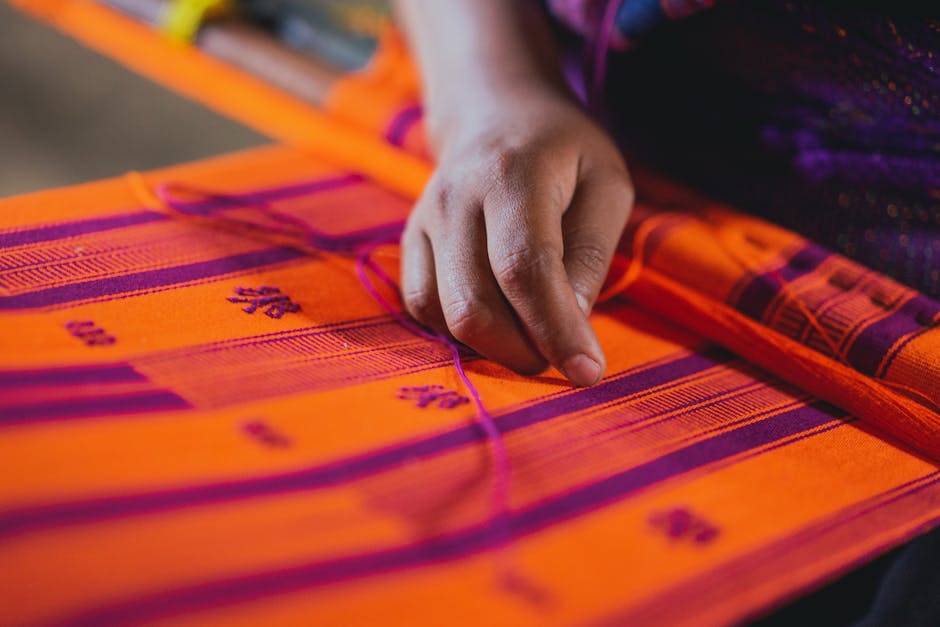Steal These 3 Secrets to B-School’s Success
Oh, I understands. Oh, now I get it. Got it. Got it, people. Got it.Hey, it’s Marie Forleo and you are watching MarieTV, the place to be to create a business and life you love. You know, this is one of my favorite times of the entire year. You wanna know why? Because it’s B-School time. And I cannot believe what I’m about to say is true, but this, my friend, is our ninth year running this program.
Now, if you’re new to me and our world, and you don't know what the hell the B-School is, I’m gonna tell you. So B-School is an eight week online program that shows you how to start and grow a profitable, meaningful business. One really where your gifts get to make the difference in the world that they are meant to make.
Now, the B stands for business and, I gotta say, this program has become the gold standard for online courses. And trust me, I know you know this, but there are a lot, I mean a lot, of online courses out there right now.
And being one of the first people to create a program like this, I’ve seen so many of them just come, and then they go. And then, you know, honestly, a lot of people ask me. They say, you know, with so many courses out there that seem to talk about kind of the same stuff, how is it that B-School keeps growing and it’s constantly the one that everyone is looking to? So I really thought about that, and it's a great question. And while there’s so many things that we do and so many lessons that I’ve learned over the years, when I really took a step back I saw that there are three guiding principles that have helped us get to where we are today.
And here’s the thing, I also believe these same three principles – you can apply them to your brand and your business no matter what you do. Okay, so guiding principle number one: patience is everything. Now, I don't know if you know this, but B-School started off kinda small. I mean, our very first class we had a little over 200 people that registered for the course. Now, I gotta be honest, that did not seem small then.
But at this point we’ve had nearly 40 thousand people go through the program from 130 countries spanning 160 industries, and that honestly blows my damn mind. But I know something for a fact: we would have never gotten to this place that we’re in today if we didn't have patience. Because without patience, I probably would have made some really big and expensive mistakes, like spending a ton of money that I didn't have on high production value videos and trying to do some super tricked out website and trying to do lots of expensive advertising for ...
And this is a really important point ... an unproven product. So instead what we did is we started off super small and super scrappy, because I wanted to prove my concept.
I wanted to see that it actually worked and that people were responding. And I was ten thousand percent committed, and I still am today, to getting better year after year after year. Because for me, one of the things that I adhere to in my life, and especially in business, it is always about the long game.
Now, a mistake I notice a lot of folks making, especially in the beginning, is they want instant results. They want these blockbuster hits like a bajillion followers on social media or millions of dollars in sales after only a few years or maybe even a few months worth of work.
I’ve got to say, patience is one of the most underrated traits in modern business. Do not try and run before you can walk. You’ve gotta take pride in starting small and scrappy, and we try and operate small and scrappy to this day. You’ve got to be consistent in what you do. You have to be relentless.
And, most important, this is the thing, you need to write this down, work your tail off to make your product eff-ing outstanding over the long term.
Guiding principle number two: be boldly not for everyone. So what does that mean? So sales prevention is this beautiful thing in business, and sales prevention is when you proactively tell people, “do not buy my product.Do not buy my program.” You might be asking yourself why? Here's why.
Because not every product is right for everyone, and that’s true no matter how great you think you or your product or your service is. Because you cannot and will not please every person. So you really want to take that fact and use it to your advantage.
You want to focus on attracting your ideal customers and really repelling the rest. So, for instance, in B-School here’s what I tell people.
If you want to learn how to raise money from venture capitalists, we’re not for you. Wanna know why? Because we don't cover that.
If you’re looking for an easy button to press and then, bam, money starts shooting out of your laptop, we’re not for you. You know why? Because that’s not how a real business works, people. And if you think that you already know everything there is to know about list building and online marketing and how to sell with integrity, we’re not for you. Cuz you know why?
If you’ve already got all the customers and all the integrity you’ll ever need, keep your dollars. Because I have too much integrity to take them from you.
Bottom line is this, when you are boldly not for everyone, you’re gonna attract way more of the people that you are right for. And that, my friend, is the formula for creating raving fans. That’s the secret to making your business a real joy to run.

And when that happens, you know what starts shooting out of your laptop? No, not money. Integrity rainbows. You guys! It’s an integrity rainbow!
Oh, my God. It’s a double integrity rainbow! It’s so – it’s so beautiful! Ooh! What’s it mean?
Guiding principle number three: always over deliver.
So we routinely have folks that tell us, “Oh, my goodness, Marie. I would have paid 10k for the B-School. Who knew it was so robust?” And we’ve also had MBA and PhD grads tell us that B-School was way more actionable and way more valuable than the degree that they spent tens or even hundreds of thousands of dollars on.
So why would people say that? You know why? I think it’s because of something that we’re always striving to do, and that’s this: over deliver. I mean, our goal is always to wow the pants off of people in the best way possible and deliver at least 10 times as much value as people invest.
And three examples of how we do that in B-School are this.
So first thing that we do, we give all of our members lifetime access to the program. So that means you enroll in B-School once, meaning you pay once, and then you can join us year after year after year getting any new content or updates we make totally for free. Second thing that we do, we offer our students a team of B-School mentor coaches. So these are people that’ll help you through the live portion of the program. So rather than you just being all by yourself with your computer, you actually have this whole incredible squad of successful business owners right by your side to help you find clarity and answer your questions and help you to stay on track.
And let me tell you, our B-School mentor coaches are freaking amazing. And, finally, this really warms my heart. Our B-School students get truly heroic customer support, which is honestly pretty rare these days. And I’m gonna brag on them for just a minute. You know, our customer happiness team is so friggin’ badass that our customers often send them handwritten thank you cards and gifts.
And I’m not kidding here, the truth is, I get stuff in the mail and I’m going through it, and it’s not addressed to me. It is addressed to a specific person on my team. That is how much our customer happiness team is over delivering for our people. And I think that is just an amazing thing. I want you to think about this in your own business.
You know, how can you over deliver even more than you already do? What little special touch or additional caring can you shower on your customers that they just probably don't expect? I want you to write it down and then, most important, make it happen.
Now, obviously if you’ve already done the B-School you know this. And thank you, thank you, thank you, we love having you in the family.
And if you haven’t done B-School yet and you want to, now’s the time. Because enrollment only happens once a year. And let me tell you, people’s businesses and lives – they radically transform from this experience. The stories that come in and the stories that people stop me on the street with, it blows my mind. Now, of course, you can check out hundreds of reviews and case studies over at MarieForleoBSchool.com/reviews, or you can just follow the links below. Now, here’s the most important thing.
No matter what your business or your business dream is, I truly believe that these three principles will help you create something that really matters and something that lasts. And, most importantly, something that stands apart. Now I would love to hear from you.
So which one of these guiding principles ... we have patience, we have be boldly not for everyone, and we have always over deliver. Which one would make the biggest impact in your business right now and why?
Then tell me how you can turn that insight into action starting this very moment? Leave a comment below and let me know.
Now, as always, the very best conversations happen over at the magical land of MarieForleo.com, so go on over there and leave a comment now. And once you’re there, be sure to subscribe to our email list and become an MF Insider.
You’ll get instant access to a powerful audio training I created called How To Get Anything You Want. You’ll also get some exclusive content, some special giveaways, and personal updates from me that I just don't share anywhere else. Stay on your game and keep going for your dreams, because the world really does need that special gift that only you have. Thank you so much for watching and I’ll catch you next time on MarieTV. B-School is coming up.
Want in? For more info and free training go to JoinBSchool.com. It’s too many choices. I can’t take it.
It’s so beautiful. Sorry, I’m practicing. So tasty..
https://5billionsales.com/earn-from-selling-your-internet-data/affiliate/baezbey1
Thanks for your visit!
https://youtu.be/mbjfrtO_RXA
https://bit.ly/3xU8Dnb



